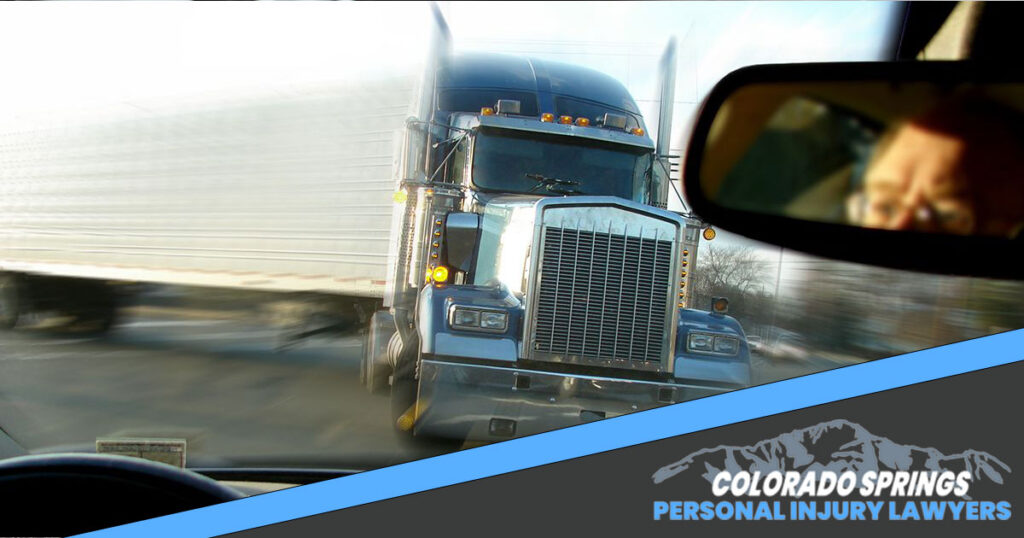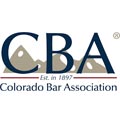A legal claim that arises from a truck accident is much more complex than a regular car accident claim, primarily due to the juxtaposition of laws at the federal, state, and local levels.
In this article, we’ll explain the different ordinances that govern truck operators and how they can affect your Colorado personal injury claim.
If you were seriously injured in a Colorado truck accident, you might be entitled to compensation or medical bills, property damage, and more. It will help tremendously if you have experienced legal counsel who has a firm knowledge of federal and state trucking regulations and how they might affect your case.
Table of Contents
ToggleTruck Accidents in Colorado Springs
Large trucks only account for about three percent of traffic injuries. However, the consequences of a truck accident are usually catastrophic or even deadly. Due to the massive size and weight of trucks, they cause much more damage than typical car accidents.
One of the biggest contributing factors in truck accidents is driver fatigue. Truck drivers often work long shifts that can be anywhere from eleven to fourteen hours. Driving for extended hours while operating such large vehicles means truck drivers have more responsibility than other motorists. As such, there are specific guidelines at the federal and state level to ensure the safety of truck drivers and everyone else on the road.
By familiarizing yourself with these regulations, you might gain some clarity on whether or not you have valid grounds for a truck accident claim. However, the only way to be sure is to consult a knowledgeable Colorado truck accident attorney who can assess your unique case details. If your case has merit and viability, your attorney can help you advise the best legal strategy to ensure you get the best outcome and the compensation you deserve.
Federal Regulations That May Affect Your Truck Accident Case
Here are some federal trucking regulations that apply to all truck drivers and companies. Federal regulations are enforced by the Federal Motor Carrier Safety Administration (FMCSA) and can affect the outcome of your personal injury claim.
Federal Limitations on Hours of Service
Federal guidelines place limits on the hours a truck driver can work within one shift and collectively in one week. Drivers are also required to keep a detailed log of their hours to ensure they comply with service hour restrictions.
The maximum number of hours a commercial vehicle driver can be on duty is 14 hours within a 24-hour period. Within that 14-hour period, they may only drive for 11 hours and must take 10 hours off following the 11-hour shift. The weekly limit is 60 hours (within seven consecutive days) and 70 hours (within eight consecutive days).
Sleeper Berth Compartment
Commercial truck drivers use a designated sleeping compartment (usually accessible from the driver’s seat) to comply with federal service hour regulations.
Drivers Who Violate Federal Service Hour Regulations
There are penalties for drivers who violate federal service hour rules, which can range from fines or downgrading of their safety rating to criminal charges.
Federal Drug Testing Requirements
Driving a commercial vehicle while intoxicated is against federal (49 CFR 383.51 and 42-2-126(2)(c)) and Colorado state laws (42-2-126(2)(c) C.R.S.).
Federal regulations require all companies to administer drug screening before hire and after accidents. They are also subject to random drug screening throughout their employment. Any proof of drug use or intoxication while on the job means the driver and the company can be found liable.
Truck operators in Colorado also have a lower B.A.C. limit than other drivers (.04 rather than the standard .08 for all other motorists). They can lose their commercial license for up to one year if they get convicted with a D.U.I. followed by a lifetime disqualification for a second offense.
Cell Phone Use While Operating a Commercial Vehicle
Truck drivers are prohibited from using handheld cell phones while driving. If a truck driver is found to have been using a handheld device for any reason while driving, both the driver and the company could be held accountable for the driver’s negligence.
Federal Cargo Regulations
Cargo must be properly and safely loaded before a truck driver may start a shipment. Failure to follow cargo ordinances and safety guidelines can have deadly results. If cargo is not secured or properly loaded, it can cause the truck driver to overturn or otherwise lose control of the massive vehicle. An accident wherein improperly loaded cargo leads to a truck accident could mean a liability of the driver, trucking company, cargo company, loading company, or a mix of several.
Federal Inspection and Maintenance Laws
Regular and adequate maintenance of large commercial trucks is crucial to ensure safety on the roadways. If a truck is improperly maintained or unsafe due to negligent inspection practices, this can have implications for your personal injury claim.
One of the most important steps after a truck accident is to conduct a detailed investigation to uncover all the accident details. An experienced Colorado Springs truck accident attorney will be able to help you launch an investigation into the case and collect the necessary evidence to support your claim.
Colorado’s Commercial Vehicle Laws
In addition to federal regulations, truck drivers in Colorado are also subject to state-level ordinances outlined by the Colorado General Assembly. In addition, the Colorado Department of Transportation enforces specific rules and regulations regarding truck transport permits.
What Is Considered a Commercial Vehicle in Colorado?
Colorado law defines a commercial vehicle as any vehicle that meets the following criteria:
- The vehicle weighs at least 16,001 pounds
- The vehicle is self-propelled
- The vehicle is designed to transport sixteen or more passengers
- The vehicle is used for commerce
- The vehicle is used for the transportation of other motor vehicles or to transport hazardous materials
- Commercial vehicles exclude school buses and specific agricultural vehicles, even if they meet the above specifications
Commercial Vehicle Driver License Requirement
- All truck operators in Colorado must be at least 18 years old and obtain a commercial driver’s license (CDL). Application for a CDL requires a social security number, proof of identity, proof of address in Colorado, and passing a medical examination to obtain a D.O.T. certified medical card.
- Other requirements to obtain a CDL in Colorado include the following:
- A background check (through Information System and National Driver Register records checks)
- Passing Specific commercial driving test
- Driver training from approved schools
- Special CDL endorsements to operate double or triple trailers, tanker vehicles, or vehicles transporting hazardous materials
- Drivers are only allowed to operate the vehicle class specified on their CDL.
If the investigation into your accident uncovers a violation of any of these regulations, there can be implications for negligence on the driver’s or trucking company’s part.
Size and Weight Limitations for Commercial Vehicles
Size and weight limits for commercial vehicles also exist for safety reasons. The CDOT regulates oversize and overweight vehicle guidelines and their operation on state highways. They do so by issuing permits and providing specific routes for commercial vehicles if they exceed legal size and weight limits.
Weight Restrictions
Any commercial vehicle with a gross combined weight rating (GCWR) exceeding 26,000 lbs must get special clearance through the state ports of entry. GCWR is the maximum weight of a truck and its trailer, including the weight of fuel, passengers, and cargo. The maximum empty GVWR before necessitating a clearance through C.S.P. is 16,000 lbs.
The empty weight of a commercial vehicle is obtained during the titling process with the Department of Revenue (DOR). During this process, the following specifications are also determined:
- Truck registration fees
- Federal Heavy Vehicle Use Tax program
- Gross vehicle weight limit for registration card purposes
A commercial vehicle’s tax class will determine which registration type is required (private vs. commercial). Oversize vehicles that exceed the size and weight limits require a special permit through CDOT and appropriate permits from local government agencies when applicable.
In some cases, commercial trucks require special permits (e.g., “super load” permits to transport extra large loads on the highway). Any truck operators who are found to be in violation of any size or weight limitations are subject to fines and other surcharges.
Mud Flap Laws for Commercial Vehicles
Mudflap laws exist to limit the amount of water and other road substances sprayed by the truck while driving. A lack of mud flaps can be dangerous to surrounding drivers and cause disastrous collisions.
According to Colorado law, flaps must be installed and functioning at all times and not be torn or damaged. If a driver notices a torn or damaged flap, they should stop at their earliest safe opportunity to exit the road and replace the flaps.
Regulations on Transporting Hazardous Materials
Every year at least 200 large trucks transporting hazardous materials cause fatal accidents. Due to the propensity for such substantial damages, commercial carriers transporting hazardous materials in Colorado must obtain a special permit with CDOT. Permit and safety requirements are enforced by Colorado State Patrol.
In addition to inspection by Colorado State Patrol, any commercial vehicles carrying hazardous materials must have liability insurance. Failure to comply with regulations can result in losing service rights and face fines and criminal charges.
Commercial vehicles with hazardous materials are required to get a single trip permit no later than 72 hours before the trip, either from the point of entry or CDOT. If a truck is transporting radioactive materials, they are subject to additional permitting and fees.
Both interstate and intrastate laws regarding the transportation of hazardous materials are regulated by C.S., for which they must provide public notice before approving a route designation.
Commercial Vehicle Chain Laws in Colorado
- Vehicle chain laws in Colorado are currently enforced by the Colorado Department of Transportation (CDOT). Vehicle chain laws basically mean the Colorado Department of Transportation collaborates with Colorado State Patrol (C.S.P.) and can decide to close any portion of the highway to public travel if they are not prepared for the conditions.
In addition, Colorado State’s Transportation Commission has a legal ordinance over Colorado’s chain laws, which apply to all state, federal, and interstate highways. Between the dates of September 1st to May 31st, all commercial vehicles on I-70 must carry sufficient chains. If the vehicle is over 26,001 pounds, it must have four or more drive wheels covered with chains (during the effective chain law dates).
Contact a Colorado Springs Truck Accident Lawyer Today
Our experienced team of Colorado Springs Truck Accident Lawyers have a proven track record and have helped countless victims and their families get generous damage awards.
Trucks are subject to many more laws than regular drivers and thus held to a higher standard of care. That also makes truck accident cases more complex than regular accidents. As such, having an attorney working for you can be highly beneficial and let you focus on healing and recovery.
If you are injured from a serious Colorado Springs truck accident, we want to help you. Call us now or contact us online for a free initial case review.

















